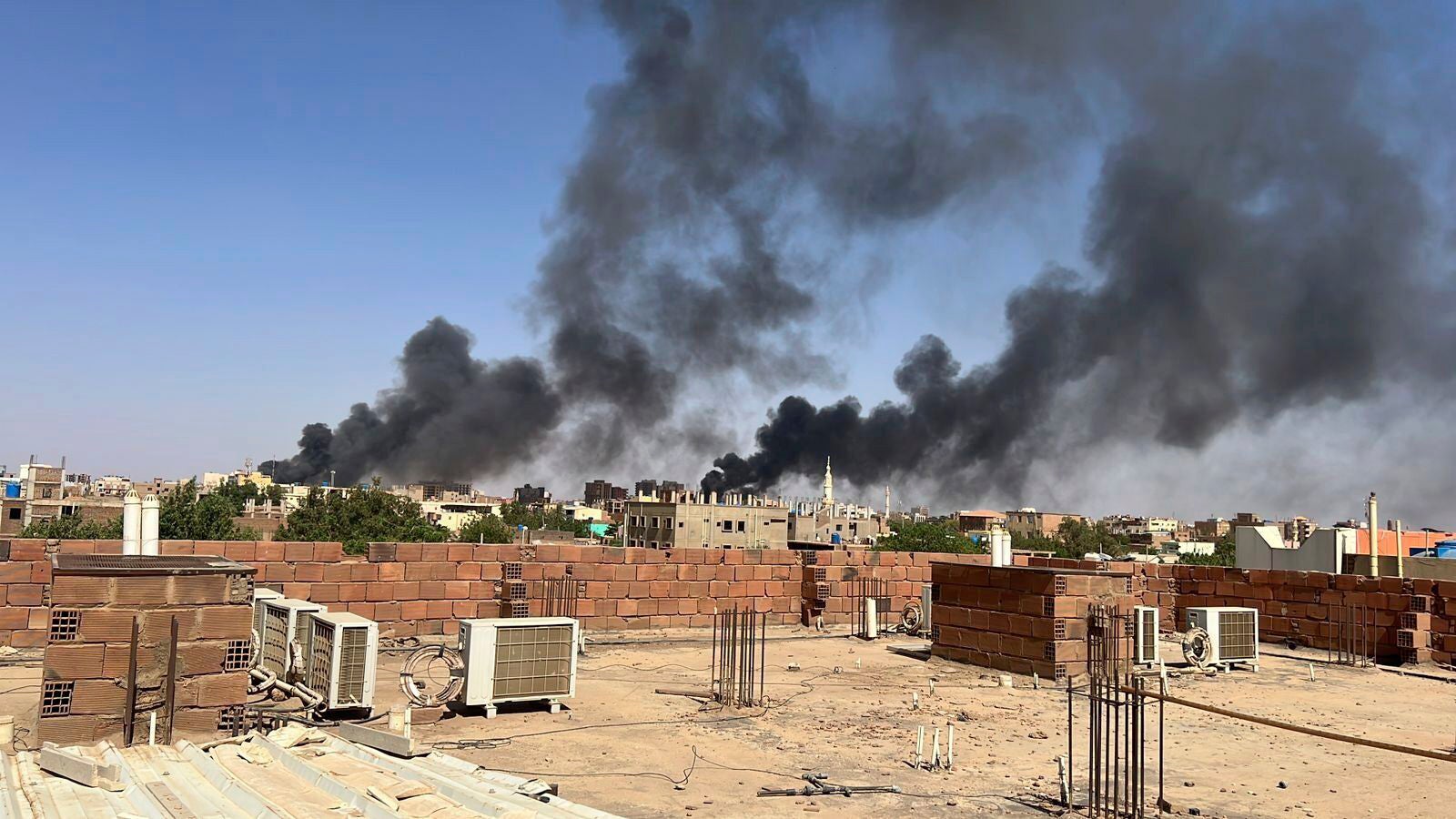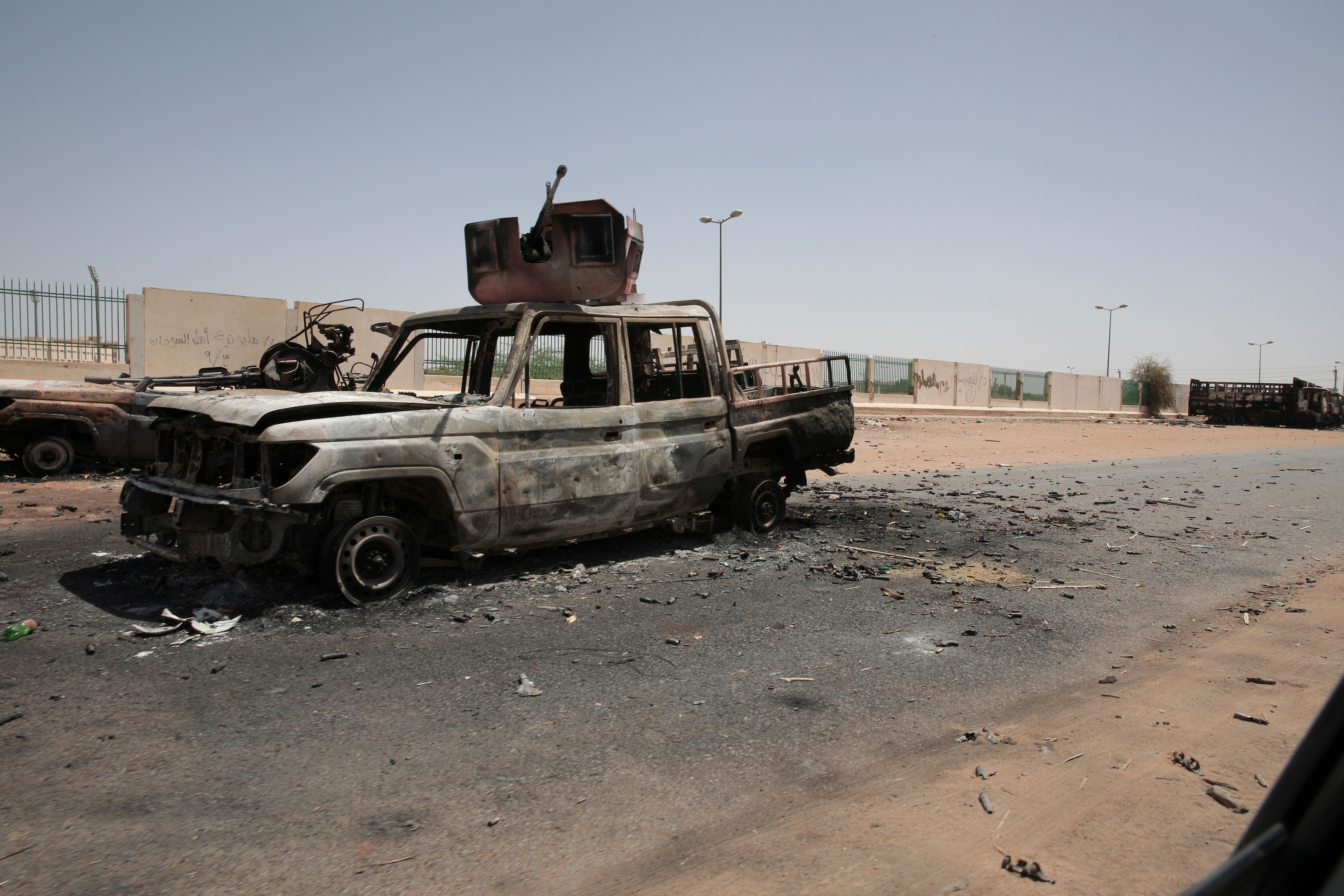What is happening in Sudan and why? The war and conflict explained
Warring factions observe fragile truce as foreign governments shutter embassies and race to evacuate their diplomats and citizens
Your support helps us to tell the story
From reproductive rights to climate change to Big Tech, The Independent is on the ground when the story is developing. Whether it's investigating the financials of Elon Musk's pro-Trump PAC or producing our latest documentary, 'The A Word', which shines a light on the American women fighting for reproductive rights, we know how important it is to parse out the facts from the messaging.
At such a critical moment in US history, we need reporters on the ground. Your donation allows us to keep sending journalists to speak to both sides of the story.
The Independent is trusted by Americans across the entire political spectrum. And unlike many other quality news outlets, we choose not to lock Americans out of our reporting and analysis with paywalls. We believe quality journalism should be available to everyone, paid for by those who can afford it.
Your support makes all the difference.Fighting has erupted in Sudan’s capital city Khartoum and across the country this month as powerful rival military factions battle for control of the African nation and its future.
The sudden slide into violence between the Sudanese army and a paramilitary group called Rapid Support Forces (RSF) stranded thousands of foreigners, including diplomats and aid workers in the country, with the UK, US, France, Germany, Italy, Greece, Egypt, Saudi Arabia and the Gulf states among those closing embassies and racing to evacuate their nationals.
Follow our live blog for latest updates
More than 450 people have been killed in the conflict and another 4,000 wounded so far, according to the World Health Organisation.
A brief 72-hour ceasefire has been declared to allow for the evacuations to take place, with negotiations currently underway to extend its duration.
British families caught up in the fighting had initially accused the UK government of “abandoning” them, despite reassurances from prime minister Rishi Sunak and the Foreign Office that talks were underway to bring them home.
After the truce was agreed between the two factions, the UK was able to airlift 536 citizens to safety, with foreign secretary James Cleverly now urging British nationals who may be “hesitant” or “weighing up their options” to make their way to Wadi Seidna, where there are “planes and capacity” in place to get people out.
Alicia Kearns, chair of the Commons Foreign Affairs Committee, told BBC Radio 4’s Today programme that the number of British people hoping to be evacuated could total “3,000, 4,000 plus”, adding that those on the ground were living in “abject fear”, had little food and water left and even been reduced to killing their pets in some cases “because they’re worried they’re going to starve”.
What’s going on in Sudan?
Tension had been building for months between Sudan’s army and the RSF, which together toppled a civilian government in an October 2021 coup.
The friction was brought to a head by an internationally-backed plan to launch a new transition with civilian parties. A final deal was due to be signed earlier in April, on the fourth anniversary of the overthrow of long-ruling autocrat Omar al-Bashir in a popular uprising.
Both the army and the RSF were required to cede power under the plan and two issues proved particularly contentious: one was the timetable for the RSF to be integrated into the regular armed forces, the second was when the army would be formally placed under civilian oversight.
When fighting broke out on 15 April, both sides blamed the other for provoking the violence. The army accused the RSF of illegal mobilisation in preceding days and the RSF, as it moved on key strategic sites in Khartoum, said the army had tried to seize full power in a plot with Bashir loyalists.
Who is fighting who?
The protagonists in the power struggle are General Abdel Fattah al-Burhan, head of the army and leader of Sudan’s ruling council since 2019 and his deputy on the council, RSF leader General Mohamed Hamdan Dagalo, commonly known as Hemedti.
As the plan for a new transition developed, Hemedti alligned himself more closely with civilian parties from a coalition, the Forces for Freedom and Change (FFC), that shared power with the military between Bashir’s overthrow and the 2021 coup.

Diplomats and analysts said this was part of a strategy by Hemedti to transform himself into a statesman. Both the FFC and Hemedti, who grew wealthy through gold mining and other ventures, stressed the need to sideline Islamist-leaning Bashir loyalists and veterans who had regained a foothold following the coup and have deep roots in the army.
Along with some pro-army rebel factions that benefited from a 2020 peace deal, the Bashir loyalists opposed the deal for a new transition.
What’s at stake?
The popular uprising had raised hopes that Sudan and its population of 46 million could emerge from decades of autocracy, internal conflict and economic isolation under Bashir.
Conflict could not only destroy those hopes but destabilise a volatile region bordering the Sahel, the Red Sea and the Horn of Africa.
It could also play into competition for influence in the region between Russia and the United States and between regional powers who have courted different actors in Sudan.
What about other countries?
Western powers including the US and the UK had swung behind a transition towards democratic elections following Bashir’s overthrow. They suspended financial support following the coup, then backed the plan for a new transition and a civilian government.
Energy-rich powers Saudi Arabia and the United Arab Emirates have also sought to shape events in Sudan, seeing the transition away from Bashir’s rule as a way to roll back Islamist influence and bolster stability in the region.
Gulf states have pursued investments in sectors including agriculture, where Sudan holds vast potential and ports on Sudan’s Red Sea coast.

Russia has been seeking to build a naval base on the Red Sea, while several UAE companies have been signing up to invest, with one UAE consortium inking a preliminary deal to build and operate a port and another UAE-based airline agreeing with a Sudanese partner to create a new low-cost carrier based in Khartoum.
Burhan and Hemedti both developed close ties to Saudi Arabia after sending troops to participate in the Saudi-led operation in Yemen. Hemedti has struck up relations with other foreign powers including the UAE and Russia.
Egypt, itself ruled by military man President Abdel Fattah al-Sisi who overthrew his Islamist predecessor, has deep ties to Burhan and the army and recently promoted a parallel track of political negotiations through parties with stronger links to the army and to Bashir’s former government.
What could happen?
International parties have called for a ceasefire and a return to dialogue but there has been little sign of compromise from the warring factions.
The army has branded the RSF as a rebel force and demanded its dissolution, while Hemedti has called Burhan a criminal and blamed him for visiting destruction on the country.
Though Sudan’s army has superior resources including air power and the RSF expanded into a force estimated at 100,000 men that had deployed across Khartoum and its neighbouring cities as well as in other regions, raising the spectre of protracted conflict on top of a long-running economic crisis and existing, large-scale humanitarian needs.
The RSF can also draw on support and tribal ties in the western region of Darfur, where it emerged from the militias that fought alongside government forces to crush rebels in a brutal war that escalated after 2003.
Additional reporting by Reuters





Join our commenting forum
Join thought-provoking conversations, follow other Independent readers and see their replies
Comments